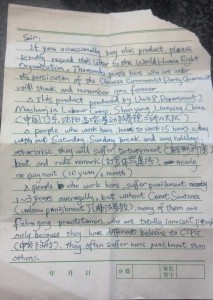Alas, the cat sanctuary on Parliament Hill is no more.
Now all we have there is politicians. This depresses me greatly.
Alas, the cat sanctuary on Parliament Hill is no more.
Now all we have there is politicians. This depresses me greatly.

Carr, Science 2013; 339:42-43
No, the title of this entry is not in reference to another miserably cold Ottawa winter (it’s not that cold, actually; I’ve seen a lot worse) but the absolute temperature scale.
Remember back in high school, when you were first taught that nothing can be colder than 0 degrees Kelvin? Well… you can’t say that anymore.
There are a variety of ways of formulating thermodynamics. Perhaps the cleanest is axiomatic thermodynamics, in which simple relationships like the conservation of energy or the existence of irreversible processes is codified in the form of axioms. One such axiom is often referred to as the Third Law of Thermodynamics; in essence, it postulates that a “ground state” of zero entropy exists, and associates this ground state with the start of the absolute temperature scale.
A little messier is classical statistical physics, where temperature is defined as the average kinetic energy per degree of freedom. Still, since kinetic energy cannot be negative, its average cannot be negative either, so it’s clear that there exists a lowest possible temperature at which all classical particles are at rest.
But statistical physics leads to another way of looking at temperature: as a means of calculating probabilities. The probability \(P_i\) of finding a particle in a state \(i\) with kinetic energy \(E_i\) will be proportional to the Boltzmann distribution:
$$P_i\propto e^{-E_i/kT},$$
where \(k\) is Boltzmann’s constant ant \(T\) is the temperature.
And here is where things get really interesting. For if it is possible to create an ensemble of particles in which \(P_i\) follows a positive exponential distribution, that clearly implies a negative temperature \(T\).
And this is precisely what has been reported in Science this week by Braun et al. (Science 2013; 339:52-55): an experimentally realized state of ultracold bosons with a distribution of kinetic (motional) energy states that follows a positive exponential curve. In other words… matter at temperature below 0 K.
How about that for a bit of 21st century physics.
This is what my cellphone greeted me with this morning:

It wasn’t much warmer on our balcony either.
I was reading about Kim Jong Un’s unusual New Year’s message when I came across this video, a documentary by Dutch filmmaker Pieter Fleury, titled North Korea: A day in the life:
Even though it’s a few years old (it was made in 2004) and despite the fact that it was obviously made under the watchful eyes of North Korea’s censors, it still speaks volumes about the world’s last Stalinist state.
To all my family and friends, to all good people everywhere… happy 2013!
For me, 2012 was… interesting. Business-wise, it was not a good year (indeed, another year like 2011 and 2012 and I will be seriously worried). In other respects, however, it was a fruitful one. Our Pioneer results are now published, indeed we earned a place on the cover of Physical Review Letters, and also on the cover of IEEE Spectrum. I had several other papers accepted in respectable journals. I was also making some slow progress with my attempts to derive a weak-field formulation of Moffat’s gravity theory that would allow us to study extended distributions of matter, both continua and N-body systems.
My wife and I celebrated our 20th wedding anniversary in September, and we survived a minor health crisis with no lasting ill effects. Our closest family members are also all in good health, so who are we to complain? The world, meanwhile, didn’t end despite a certain Mayan calendar’s dreaded predictions, the Eurozone is still there, the economy is limping ahead (at least here in North America), so for now, all is well. Now about that fiscal cliff…
Anyhow, I’m looking forward to 2013. I have some interesting contract work. I’ll be going to Texas to talk at a conference early in the coming year. And, I hope, I’ll be able to continue my work on modified gravity and achieve some useful results.
And last but not least… in a few months, I will be half a century old. A strange milestone, as I am still wondering what I’ll be when I grow up.
 For a while today, Google India had a solitary candle on its start page. It was in memory of the “Delhi braveheart”, also called Damini (lightning in Hindi) by some. She was the 23-year old woman who was brutally raped and sodomized on a bus in New Delhi. Her identity remains undisclosed for now for legal reasons; some argue that she should be named in order to properly honor her in death, others suggest that the power of her legacy is amplified by the fact that her identity is not known.
For a while today, Google India had a solitary candle on its start page. It was in memory of the “Delhi braveheart”, also called Damini (lightning in Hindi) by some. She was the 23-year old woman who was brutally raped and sodomized on a bus in New Delhi. Her identity remains undisclosed for now for legal reasons; some argue that she should be named in order to properly honor her in death, others suggest that the power of her legacy is amplified by the fact that her identity is not known.
Either way… what happened to her is sickening and unconscionable. The details are too brutal even to think about. It is difficult to comprehend that there are males on this planet who think of women not as soulmates, companions for life or mothers of their children, but as objects to be brutally abused and then discarded, left to die in a ditch.
I am opposed to the death penalty on principle but I will not shed a single tear if these six animals are executed. In fact, I am ashamed to admit that I’d probably torture them to death if it were up to me. But then… two wrongs do not make a right. Nothing will bring Damini back to life. So perhaps instead of thinking about retribution, we should think about preventing future attacks of this nature. Communicating the idea that there is nothing “macho” about treating a woman like a used blow-up doll might be a good beginning.
 Here is a reason why I prefer not to buy goods made in China. Some of the goods from that country may have been made in “re-education through labor” camps.
Here is a reason why I prefer not to buy goods made in China. Some of the goods from that country may have been made in “re-education through labor” camps.
In other words, forced labor.
And last year, a camp inmate had the courage to smuggle a letter into the packaging of a Halloween decoration kit. The package sat unopened by its purchaser for a year, when she finally decided to put up some Halloween decorations.
Note to retailers: I am more than happy to pay a premium for goods made in Canada or the US, by free people earning decent wages. And, while I may be in a minority for the time being, I am pretty sure I am not alone.
Today I ran across the Web site of a movement to amend the US constitution to explicitly declare that corporations are not persons. I like the idea. In fact, it inspired me to exercise my non-existent skills as a cartoonist.
 I am so not into “franchise” novels, novels that are written-to-order, set in the universe of an established franchise like Star Trek. Like franchise computer games, franchise novels tend to be hollow, weak, transparent attempts to capitalize from the success of the original work.
I am so not into “franchise” novels, novels that are written-to-order, set in the universe of an established franchise like Star Trek. Like franchise computer games, franchise novels tend to be hollow, weak, transparent attempts to capitalize from the success of the original work.
I like Star Trek. Over the years, I did read the occasional Star Trek “franchise” story, but they did not leave much of an impression. So I was not particualrly motivated to read another.
That said, when I recently read about Provenance of Shadows by David R. George III, a franchise novel written to coincide with the 40th anniversary of the series, for reasons I can no longer recall I became sufficiently intrigued to read the sample chapters on Google Books. They were enough to get me to buy the book. I do not regret doing so.
Spoiler alert
This book tells the story of an alternate timeline. Namely, the alternate timeline created by the events in the famous Star Trek episode “The City at the Edge of Forever”, in which Dr. McCoy finds himself in 1930 and, as we later learn, by preventing the death of a social worker, gravely alters history. The social worker, Edith Keeler, is a devoted pacifist; in the alternate timeline, she launches a pacifist movement that becomes powerful enough to delay the entry of the United States into World War II. This gives Hitler a chance to achieve victory on the Eastern Front, Japan a chance to conquer much of the South Pacific including New Zealand and parts of Australia, and most alarmingly, gives the Nazi atomic bomb project a head start.
I find this “alternate history” timeline compellingly believable. We tend to think that the defeat of the Nazis was a historical inevitability but it was by no means preordained. Suppose the United States adopts a different posture in the Pacific in the late 1930s and early 1940s, so that Japan has easier access to raw materials and oil, and feels less threatened by the US Navy. Suppose this convinces Japan that defeating the US is not a priority. No Pearl Harbor in 1941 means no opportunity for Stalin to move a huge, well-equipped and experienced winter fighting force from Siberia to Moscow, and the first successful Soviet counteroffensive never happens. There is a good chance, then, that Hitler would have captured Moscow in early 1942 and after that, Stalin’s government may have collapsed. With the resources of the Soviet Union secured, Hitler would have finished “pacifying” Western Europe, including Great Britain. Had this happened, the world in which we live would be a very different place today.
McCoy’s struggles to avoid altering history and later, to understand how he altered history, and his struggles to come to term with his own demons both in this alternate history and also, back in the 23rd century in the original timeline, make this book a compelling read. I enjoyed it thoroughly.
And from the crew of Apollo 8, we close with good night, good luck, a Merry Christmas and God bless all of you – all of you on the good Earth.
– Frank Borman from Apollo 8, December 24, 1968

A Facebook friend shared this image, a cartoon about conservative vs. liberal views on equality:

Looking at the image, I realize that deep in my soul, I am in fact a conservative. That’s because I see another variation of the same picture (and it’s not the crudeness of my art to which I am referring):

Then again, if I am a conservative, so was Kurt Vonnegut. Why else would he have written a story like Harrison Bergeron, in which a totalitarian state uses a form of mind control to create equality between intellectually gifted and less talented people?
Or perhaps I am neither a conservative nor a liberal (and the same goes for Kurt Vonnegut). Instead, I am trying to use rational thinking to decide what’s best in a given situation, without resorting to ideology or dogma.
 My other extracurricular activity today involved a shovel.
My other extracurricular activity today involved a shovel.
That is because we ended up with quite a few inches of wet, heavy snow, courtesy of this year’s first major winter storm. And I like to shovel the snow off my balcony, rather than let it rot the deck and leak in through our balcony door.
At least I didn’t have to go anywhere. Those who did had a hard time on the roads. A poor double-decker actually ended up in the ditch this morning.
But hey, we’re all still alive! Contrary to certain Mayan prophecies, the world did not come to an end. The daily struggle of our existence continues.
 I spent some of my time today building a calculator.
I spent some of my time today building a calculator.
I still know how to handle a soldering iron, but this time around, the design is not of my own. The credit goes to Michael Berger, a calculator enthusiast in Germany who decided to resurrect a classic East German desktop calculator, the Robotron K-1003 in the form of a microcontroller-based kit.
And thanks to Michael, I had some pre-Christmas fun. But now that the calculator is up and running, I feel compelled to find its original German-language manuals and understand its programming model.
I have received a surprising number of comments to my recent post on the gravitational potential, including a criticism: namely that what I am saying is nonsense, that in fact it is well known (there is actually a resolution by the International Astronomical Union to this effect) that in the vicinity of the Earth, the gravitational potential is well approximated using the Earth’s multipole plus tidal contributions, and that the potential, therefore, is determined primarily by the Earth itself, the Sun only playing a minor role, contrary to what I was blabbering about.
But this is precisely the view of gravity that I was arguing against. As they say, a picture is worth a thousand words, so let me try to demonstrate it with pictures, starting with this one:

It is a crude one-dimensional depiction of the Earth’s gravity well (between the two vertical black lines) embedded in the much deeper gravity well (centered) of the Sun. In other words, what I depicted is the sum of two gravitational potentials:
$$U=-\frac{GM}{R}-\frac{Gm}{r}.$$
Let me now zoom into the area marked by the vertical lines for a better view:

It looks like a perfectly ordinary gravitational potential well, except that it is slightly lopsided.
So what if I ignored the Sun’s potential altogether? In other words, what if I considered the potential given by
$$U=-\frac{Gm}{r}+C$$
instead, where \(C\) is just some normalization constant to ensure that I am comparing apples to apples here? This is what I get:

The green curve approximates the red curve fairly well deep inside the potential well but fails further out.
But wait a cotton-picking minute. When I say “approximate”, what does that tell you? Why, we approximate curves with Taylor series, don’t we, at least when we can. The Sun’s gravitational potential, \(-GM/R\), near the vicinity of the Earth located at \(R=R_0\), would be given by the approximation
$$-\frac{GM}{R}=-\frac{GM}{R_0}+\frac{GM}{R_0^2}(R-R_0)-\frac{GM}{R_0^3}(R-R_0)^2+{\cal O}\left(\frac{GM}{R_0^4}[R-R_0]^3\right).$$
And in this oversimplified one-dimensional case, \(r=R-R_0\) so I might as well write
$$-\frac{GM}{R}=-\frac{GM}{R_0}+\frac{GM}{R_0^2}r-\frac{GM}{R_0^3}r^2+{\cal O}\left(\frac{GM}{R_0^4}r^3\right).$$
(In the three-dimensional case, the math gets messier but the principle remains the same.)
So when I used a constant previously, its value would have been \(C=-GM/R_0\) and this would be just the zeroeth order term in the Taylor series expansion of the Sun’s potential. What if I include more terms and write:
$$U\simeq-\frac{Gm}{r}-\frac{GM}{R_0}+\frac{GM}{R_0^2}r-\frac{GM}{R_0^3}r^2?$$
When I plot this, here is what I get:

The blue curve now does a much better job approximating the red one. (Incidentally, note that if I differentiate by \(r\) to obtain the acceleration, I get: \(a=-dU/dr=-Gm/r^2-GM/R_0^2+2GMr/R_0^3\), which is the sum of the terrestrial acceleration, the solar acceleration that determines the Earth’s orbit around the Sun, and the usual tidal term. So this is another way to derive the tidal term. But, I digress.)
The improvement can also be seen if I plot the relative error of the green vs. blue curves:

So far so good. But the blue curve still fails miserably further outside. Let me zoom back out to the scale of the original plot:

Oops.
So while it is true that in the vicinity of the Earth, the tidal potential is a useful approximation, it is not the “real thing”. And when we perform a physical experiment that involves, e.g., a distant spacecraft or astronomical objects, the tidal potential must not be used. Such experiments, for instance tests measuring gravitational time dilation or the gravitational frequency shift of an electromagnetic signal are readily realizable nowadays with precision equipment.
But it just occurred to me that even at the pure Newtonian level, the value of the potential \(U\) plays an observable role: it determines the escape velocity. A projectile escapes to infinity if its overall energy (kinetic plus potential) is greater than zero: \(mv^2/2 + mU>0\). In other words, the escape velocity \(v\) is determined by the formula
$$v>\sqrt{-2U}.$$
The escape velocity works both ways; it also tells you the velocity to which an object accelerates as it falls from infinity. So suppose you let lose a rock somewhere in deep space far from the Sun and it falls towards the Earth. Its velocity at impact will be 43.6 km/s… without the Sun’s influence, its impact velocity would have been only 11.2 km/s.
So using somewhat more poetic language, the relationship of us, surface dwellers, to distant parts of the universe, is determined primarily not by the gravity of the planet on which we stand, but by the gravitational field of our Sun… or maybe our galaxy… or maybe the supercluster of which our galaxy is a member.
As I said in my preceding post… gravity is weird.
The following gnuplot code, which I am recording here for posterity, was used to produce the plots in this post:
set terminal gif size 320,240 unset border unset xtics unset ytics set xrange [-5:5] set yrange [-5:0] set output 'pot0.gif' set arrow from 0.5,-5 to 0.5,0 nohead lc rgb 'black' lw 0.1 set arrow from 1.5,-5 to 1.5,0 nohead lc rgb 'black' lw 0.1 plot -1/abs(x)-0.1/abs(x-1) lw 3 notitle unset arrow set xrange [0.5:1.5] set output 'pot1.gif' plot -1/abs(x)-0.1/abs(x-1) lw 3 notitle set output 'pot2.gif' plot -1/abs(x)-0.1/abs(x-1) lw 3 notitle,-0.1/abs(x-1)-1 lw 3 notitle set output 'pot3.gif' plot -1/abs(x)-0.1/abs(x-1) lw 3 notitle,-0.1/abs(x-1)-1 lw 3 notitle,-0.1/abs(x-1)-1+(x-1)-(x-1)**2 lw 3 notitle set xrange [-5:5] set output 'pot4.gif' set arrow from 0.5,-5 to 0.5,0 nohead lc rgb 'black' lw 0.1 set arrow from 1.5,-5 to 1.5,0 nohead lc rgb 'black' lw 0.1 replot unset arrow set output 'potdiff.gif' set xrange [0.5:1.5] set yrange [*:*] plot 0 notitle,\ ((-1/abs(x)-0.1/abs(x-1))-(-0.1/abs(x-1)-1))/(-1/abs(x)-0.1/abs(x-1)) lw 3 notitle,\ ((-1/abs(x)-0.1/abs(x-1))-(-0.1/abs(x-1)-1+(x-1)-(x-1)**2))/(-1/abs(x)-0.1/abs(x-1)) lw 3 notitle
 I use a simple WordPress plugin, called “Simple Facebook Connect”, to automatically post my blog posts to Facebook. The plugin also provides a Like button for my posts. Recently, I noticed that a number of my posts acquired a fair number of Likes from apparent strangers.
I use a simple WordPress plugin, called “Simple Facebook Connect”, to automatically post my blog posts to Facebook. The plugin also provides a Like button for my posts. Recently, I noticed that a number of my posts acquired a fair number of Likes from apparent strangers.
Today, it became clear to me that the plugin is cheating. After exchanging a series of comments on Facebook in response to one of my blog posts, I noticed that every time a comment was added, the number of Likes went up by one. So no, I am not nearly as popular as I previously thought.
Oh well. Blogs are meant to be written, not read.
 Generally, I am sympathetic towards the American concept of gun rights. The basic idea, as I understand it, is sound: a constitution that explicitly forbids government from claiming a monopoly on organized violence, in contrast with European countries where government has that monopoly. It is part of a well thought out system of checks and balances that characterizes America’s quarter millennia old stable democracy.
Generally, I am sympathetic towards the American concept of gun rights. The basic idea, as I understand it, is sound: a constitution that explicitly forbids government from claiming a monopoly on organized violence, in contrast with European countries where government has that monopoly. It is part of a well thought out system of checks and balances that characterizes America’s quarter millennia old stable democracy.
What I don’t really understand is how this, the notion of a “well regulated militia” that citizens can freely form and, if needed, rely on to fight government oppression, is related to the concept of granting every imbecile the “God-given” right to have a military grade assault rifle. I honestly don’t think that America’s founding fathers had concealed carry permits and assault rifles in mind when they formulated the Second Amendment.
But where the “gun nuts” really lost credibility in my view is when they began advocating that teachers be allowed, or even required, to carry a gun. Have you guys gone completely bonkers? Do you really think that the solution to tragedies like the Newtown massacre is to turn schools into battlegrounds? Do you actually listen to yourselves when you utter such a blatant idiocy?
I told a pro-gun friend of mine that if gun advocates continue on this course, it will only accomplish one thing in the end: we may yet see the Second Amendment repealed within our lifetime. And if that happens, the “gun nuts” will only have themselves to blame.
 There is something curious about gravity in general relativity. Specifically, the gravitational potential.
There is something curious about gravity in general relativity. Specifically, the gravitational potential.
In high school, we were taught about this mysterious thing called “potential energy” or “gravitational potential”, but we were always assured that it’s really just the difference between potentials that matters. For instance, when you drop a stone from a tall tower, its final velocity (ignoring air resistance) is determined by the difference in gravitational potential energy at the top and at the bottom of the tower. If you study more sophisticated physics, you eventually learn that it’s not the gravitational potential, only its gradient that has physically observable meaning.
Things are different in general relativity. The geometry of spacetime, in particular the metric and its components are determined by the gravitational potential itself, not its gradient. In particular, we have
$$
g_{00} = 1 – \frac{2GM}{c^2r}
$$
in the infamous Schwarzschild metric, where \(g\) is the metric tensor, \(G\) is the universal gravitational constant, \(c\) is the speed of light, \(M\) is the mass of the gravitating object, and \(r\) is the distance from it. Since the Newtonian gravitational field is given by \(U=-GM/r\), this means
$$
g_{00} = 1 – \frac{2}{c^2}U.
$$
This quantity has physical significance. For instance, the angle by which light is deflected when it passes near a star is given by \(4c^{-2}U\).
So then, what is the value of \(U\) here on the surface of the Earth? Why, it’s easy. The mass of the Earth is \(M_E=6\times 10^{24}\) kg, its radius is roughly \(R_E=6.37\times 10^6\) m, so
$$
\frac{1}{c^2}U_E=\frac{GM_E}{c^2R_E} \simeq 7\times 10^{-10}.
$$
You could be forgiven for thinking that this is the right answer, but it really isn’t. For let’s just calculate the gravitational potential of the Sun as felt here on the Earth. Yes, I know, the Sun is quite a distance away and all, but play along, will you.
The mass of the Sun is \(M_\odot=2\times 10^{30}\) kg, its distance from the Earth is \(R_\odot=1.5\times 10^{11}\) m. So for the Sun,
$$
\frac{1}{c^2}U_\odot=\frac{GM_\odot}{c^2R_\odot} \simeq 10^{-8}.
$$
Whoops! This is more than an order of magnitude bigger than the Earth’s own gravitational potential! So right here, on the surface of the Earth, \(U\) is dominated by the Sun!
Or is it? Let’s just quickly check what the gravitational potential of the Milky Way is here on the Earth. The Sun is zipping around the center in what we believe is a roughly circular orbit, at a speed of 250 km/s. We know that for a circular orbit, the velocity is \(v_\star=\sqrt{GM_\star/R_\star}=\sqrt{U_\star}\), so
$$
\frac{1}{c^2}U_\star = \frac{v_\star^2}{c^2} \simeq 7\times 10^{-7}.
$$
This is almost two orders of magnitude bigger than the gravitational potential due to the Sun! So here, on the surface of the Earth, the gravitational potential is dominated by the large concentration of mass near the center of the Milky Way, some 8 kiloparsecs (25 thousand light years) from here. Wow!
But wait a minute, is this the end? There is the Local Supercluster of galaxies of which the Milky Way is part. Its mass \(M_V\) is believed to be about \(10^{15}\) times the mass of the Sun, and it is believed to be centered near the Virgo cluster, about 65 million light years or about \(R_V=6.5\times 10^{23}\) meters away. So (this is necessarily a crude estimate, but it will serve as an order-of-magnitude value):
$$
\frac{1}{c^2}U_V=\frac{GM_V}{c^2R_V} \simeq 2.3\times 10^{-6}.
$$
This value for the gravitational potential right here on the Earth’s surface, astonishingly, is more than 3,000 times the gravitational potential due to the Earth’s own mass. Is this the end? Or would more distant objects exert an even greater influence on the gravitational field here on the Earth? The answer is the latter. That is because as we look further into the distant universe, the amount of mass we see goes up by the square of the distance, but their gravitational influence goes down by only the first power of the distance. So if you look at 10 times the distance, you will see 100 times as much matter; the gravitational influence of each unit of matter will decrease by a factor of 10 but overall, with a hundred times as much mass, the total gravitational influence will still go up tenfold.
So the local gravitational field is dominated by the most distant matter in the universe.
And by local gravitational field, I of course mean the local metric, which in turn determines how light is deflected, how clocks slow down, how the wavelength of photons shifts.
Insanely, we may not even know how fast a “true” clock in our universe runs, one that is free of gravitational influences, because we don’t know the actual magnitude of the sum total of all gravitational influences here on the Earth.
Gravity is weird.
I came across this a while back; one of the most astonishing places on Earth, near the village of Derweze (also spelled as Darvaza) in Turkmenistan.
Situated in an already lunar looking landscape in the Karakum desert, there is a crater that is unlike anything on the real Moon: it’s a crater full of fire. The ground collapsed here in 1971 after Soviet geologists were drilling for oil and found natural gas instead. The gas was ignited in the hope that it would safely burn off in days… it has been burning ever since.
 Predictably and understandably, a lot of people are questioning America’s gun laws in the wake of the Newtown, CT massacre.
Predictably and understandably, a lot of people are questioning America’s gun laws in the wake of the Newtown, CT massacre.
What I would like to know is this: exactly when did “a well-regulated militia being necessary to the security of a free state” turn into the right for every clown and idiot to own assault weapons or to walk around in crowded places with a concealed handgun? Is this really what the Founding Fathers wanted?
To me, the meaning of the Second Amendment is clear: it is about not granting government a monopoly on violence. It is about the citizenry’s right to arm themselves and if necessary, protect themselves from oppression. But this meaning seems to have been forgotten. Last time I checked, American citizens long ago lost the right (if they ever had it in the first place) to operate private well-regulated militias that own, never mind aircraft carriers or ballistic missiles, how about tanks and fighter aircraft, the kinds of weapons necessary for protection against an oppressive state, as the civil war in Syria amply demonstrates.
So the original meaning of the Second Amendment is long lost; should the US Federal Government turn into an oppressive dictatorship, concealed handguns or semi-automatic assault rifles are not going to do much good against tanks, drones, or smart missiles.
But then, why is it necessary to let every idiot purchase a high-power handgun that serves only one purpose: to kill people, lots of people, at a high rate of efficiency?
Just wondering.
In just a few minutes, it will be exactly 40 years that the crew of Apollo 17 took off from the Moon, ending humanity’s last excursion to date on our satellite.
Incredibly, no human ventured beyond low Earth orbit since.